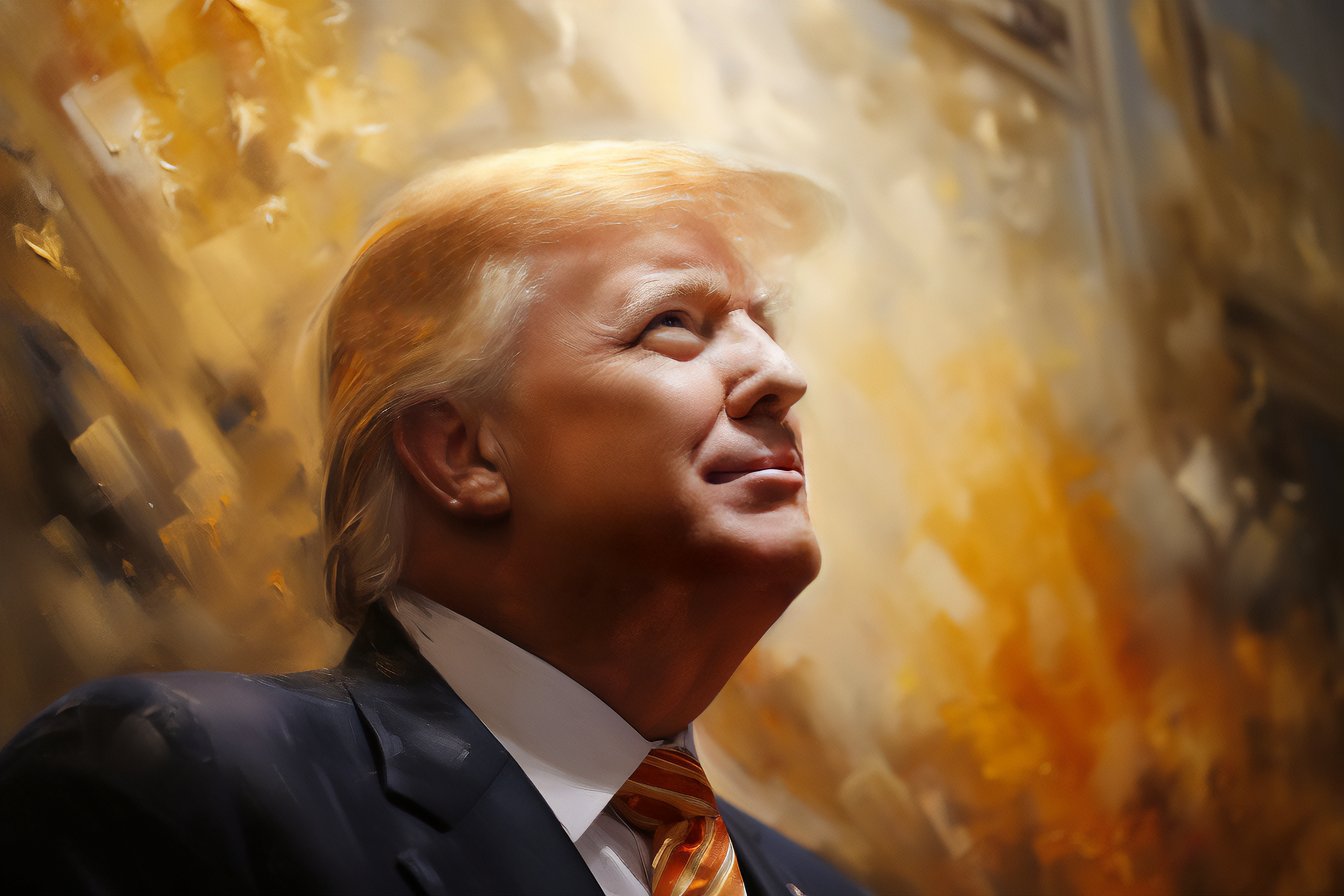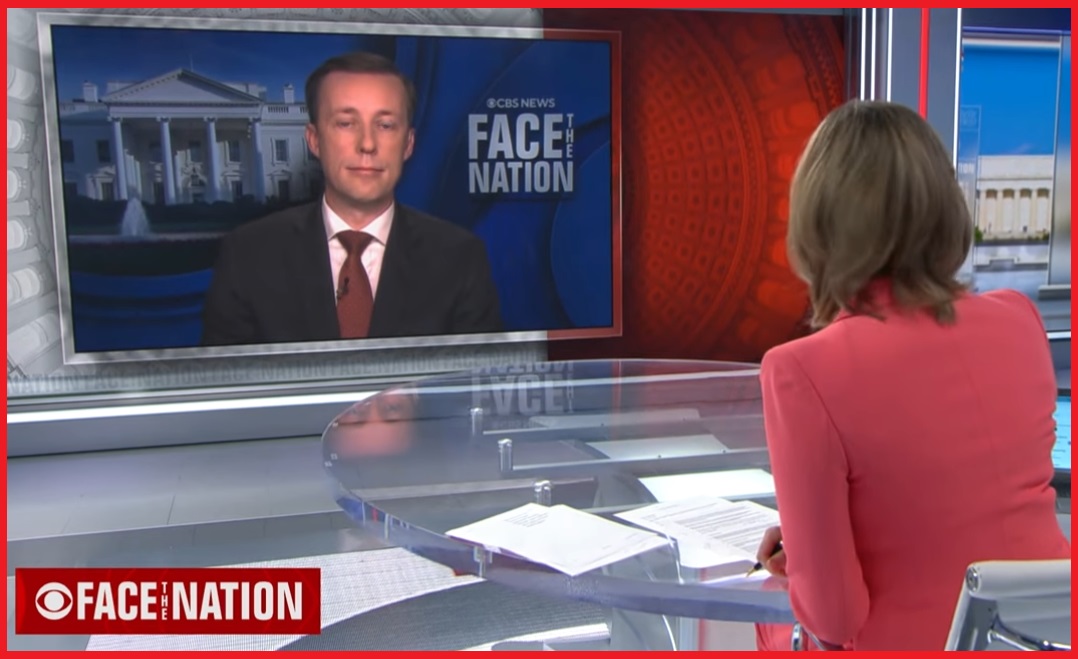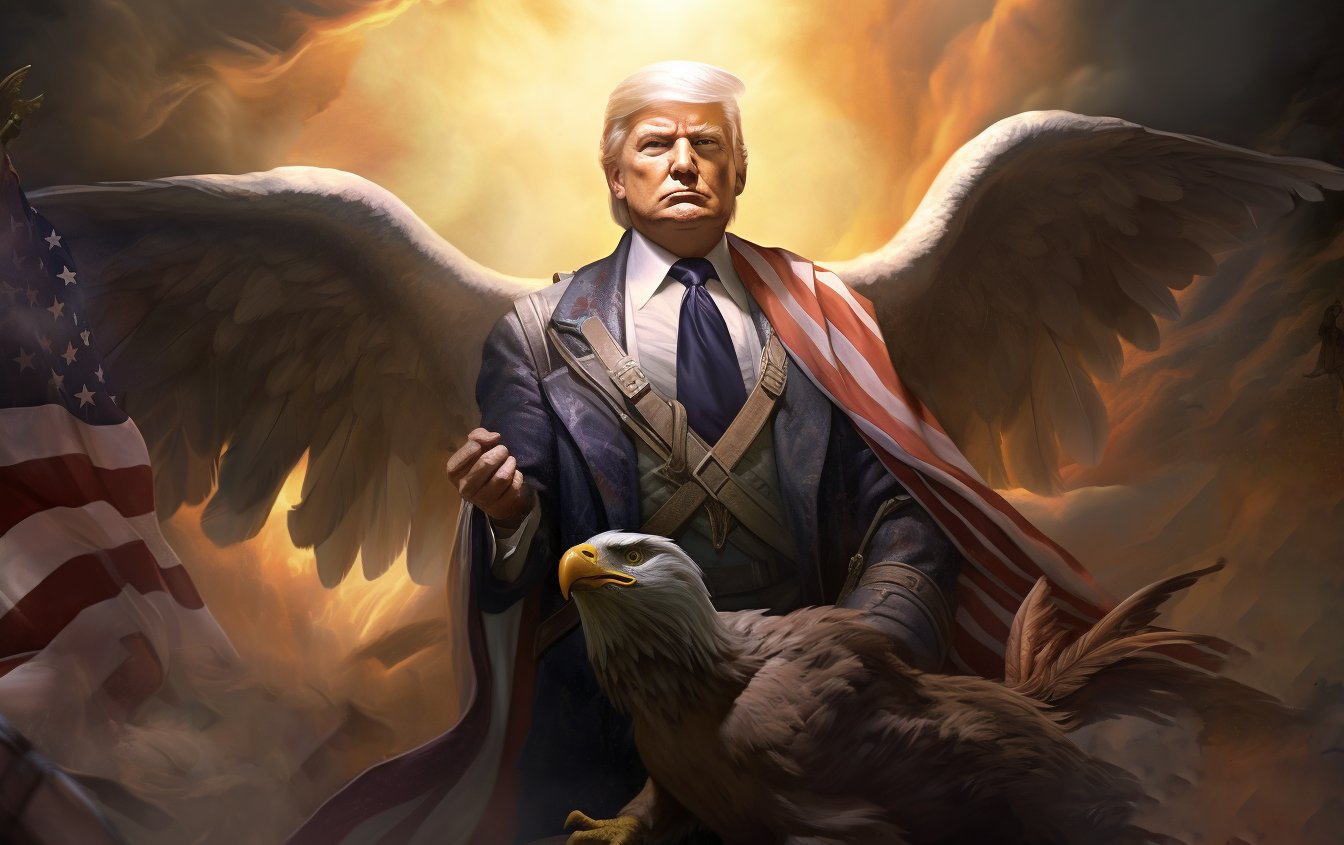Jake Sullivan Discusses China, North Korea, Ukraine and Steering Biden Policy from DC
From the position of influence and affluence, both Republican and Democrat policy makers are aligned in a unified outlook toward foreign policy and geopolitical affairs. Washington DC does not have two competing political parties on these issues; there is complete alignment and unidirectional focus. Never forget that.
Before getting to the Sullivan points, I’m going to shift the discussion slightly, back to the core and explain something that might help provide context for issues from China to Russia and beyond.
Everyone in Washington DC agrees with the agencies and institutions that create the national security state. The intelligence apparatus and the national security agencies frame the “interests of the U.S. government.” The politicians never push back against those agencies and the strategic policies they present as a solution. This is important to accept as you contemplate the continued push only in one interventionist direction, regardless of American public opinion.
The only countervailing force that has ever entered the modern system against this dynamic was President Donald Trump. That is why the “system”, consisting of both Republicans and Democrats, together with every institution the system controls, was/is/are unified to repel Trump.
This hive mindset is critical to understand, because the central conflict, the perspective that Trump represents a threat, originates from whether the combined institutional administrative state is correct in their assessments or not.
The “system,” an assembly of career ideologues who define themselves by their sense of self-importance, never believe they are wrong about anything; therefore, every means is justified in their mind. Any person who opposes their worldview is a threat. Every threat then becomes a target.
EXAMPLE (not accidentally selected) – If the DC HIVE believes that China may launch a biological weapon against the world. Every agency within the system then begins to process themselves in defense of that perceived possibility.
The Defense Dept works to run drills against biologics and games out consequences and countervailing actions. The govt simultaneously begins inserting scientists into the Chinese operations to feedback information to support the activity of those in the U.S. organizing against the perceived possibility.
The CIA, NSA, DoD, DHS and State Dept, then begin constructing internal mechanisms that can evaluate, respond and react to the perceived possibility. From that viewpoint, defeating Russia is viewed as a way to show China what will happen if the perceived possibility is real.
In this scenario, the key point of reference is to note that all of the action taken by the system is done without ever addressing or confronting the core issue, the perceived threat. Everything becomes a series of if this – then that, scenarios. No one in the system ever questions the origin of the thesis. Years can pass and this process grows on a totally unfounded theory, with an origin that eventually no one can identify.
 Into this weird system of perception, theory and possibility driving policy, comes an entity like Donald Trump.
Into this weird system of perception, theory and possibility driving policy, comes an entity like Donald Trump.
President Trump does the complete opposite of what every institutional action has been created to support.
President Trump cuts to the bottom line, asking China directly, openly and publicly, “Hey, Chairman Xi, are you planning to create a deadly biological weapon – based on your desire to rule the world?”
OMG, the entire DC system goes into apoplectic fits. Every institution, now centered around a mission which was based on this perceived threat – generating billions in funding and thousands of jobs and careers, now proclaims President Trump is putting the U.S. at risk.
If you think this is an overly simplistic intellectual example, you’re wrong. This is exactly how the DC process unfolds, and there are dozens of examples of this in the tenure of President Trump in office.
Trump’s foreign policy doctrine, a brutally honest and pragmatic approach, was essentially this. Direct questions, direct expectations and direct outlines.
President Trump did it in Saudi Arabia with ISIS. He did it in Egypt and Jordan to support Israel. He did it in Europe with NATO. He did it in Asia with North Korea. He did it with Turkey about Syria. He did it with Pakistan about the Taliban. He did it in Afghanistan about Iran. Trump did it in India, China, Canada, Mexico, the U.K, Russia and everywhere he went.
The President Trump message, the Doctrine per se’, was simple; don’t do stupid shit, and we’re good! If you have been doing stupid shit, then stop! If you don’t stop, I’ll destroy you economically.
The absolute pinnacle of this was Trump talking directly to Chairman Kim Jong-un, because he knew Beijing was the voice in the background controlling the activity of North Korea. Chairman Xi was gob-smacked in his noodles, not knowing what Kim and Trump were talking about.
People can argue about the effectiveness of the Trump doctrine, but the outcomes speak for themselves. Everyone stopped doing their stupid shit, and things were better.
Here’s the DC HIVE:
[Transcript] – MARGARET BRENNAN: We turn now to White House National Security Adviser Jake Sullivan, who joins us from Washington. Good morning to you, Jake. The presidential envoy on climate John Kerry just landed in Beijing. He’s the third cabinet member in recent weeks to go to China. Do you expect President Xi and Biden to talk anytime soon?
WHITE HOUSE NATIONAL SECURITY ADVISER JAKE SULLIVAN: Well, we don’t have anything to announce today, but I do expect that at some point, the president, President Biden, and President Xi will have the opportunity to speak again. And there’s a lot to review in the relationship. It is a big, complex, challenging relationship that has to be managed carefully and that can only really be done effectively from the very top. So I do expect at some point the two leaders will speak.
MARGARET BRENNAN: Well, you know, the Commerce Department has, in many ways, been this like tip of the spear in this competition and restriction in the high tech space. That was one of the agencies targeted by China based actors, according to Microsoft in this hacking. Reportedly, the Commerce Secretary herself had her email hacked. Will there be repercussions for Beijing?
SULLIVAN: Well, first, Margaret, this was an intrusion, actually into Microsoft, into Microsoft’s cloud system. And they went in through that to get into the unclassified email system of U.S. government agencies. It was actually the U.S. government that discovered the intrusion, alerted Microsoft, and shut it down. And we’re taking steps to make sure that that’s not a vulnerability going forward. We have seen this kind of thing before many times over many administrations, and we take steps to try to hold the relevant actors responsible and will do so in this case.
MARGARET BRENNAN: They are China based actors, according to Microsoft. Do you have any reason to dispute that?
SULLIVAN: Well, we haven’t- No, I have no reason to dispute what Microsoft is saying. We go through a rigorous process of attribution. We have not formally attributed it, but I’ve seen nothing to dispute Microsoft’s judgment on who did this.
MARGARET BRENNAN: The Treasury Secretary told us that China’s decision to cut off ingredients for computer chips starting August 1 may be retaliatory for some of the actions the U.S. has taken to restrict tech sales to China. Do you see this as tit for tat moves here? Are we in a period of escalation, despite your diplomatic outreach?
SULLIVAN: Look, I can’t get inside the heads of the Chinese decision makers, so I’m not sure what was motivating them. What I do know is that I think it’s a self defeating move, because I believe that it will only reinforce the determination of many other countries in the world to de-risk, to find ways to reduce dependencies and increase the resilience of their own supply chains, including for the kinds of critical minerals that are at issue in this particular decision. So from our perspective, we are being clear and transparent about steps we’re taking. We’re not looking to end all trade with China, what we’re looking to do is have a small yard of restrictions on technology with national security implications, and a high fence around that yard. That’s what we’re going to continue to do. And China, of course, will have to make its own decisions.
MARGARET BRENNAN: Staying in Asia. We saw this week that North Korea appears to have taken a significant step towards an intercontinental ballistic missile that could put the US within range of a nuclear weapon potentially. Are you concerned that they will carry out another nuclear test in the coming weeks?
SULLIVAN: I have been concerned for some time that North Korea would conduct what would be its seventh nuclear test going back multiple administrations. And I remain concerned about that. I don’t see any immediate indications that that’s going to happen. But it would not come as a surprise if North Korea moved forward with another nuclear test with respect to its intercontinental ballistic missile capability. This is a capability they began testing several years ago, they have continued to test it. We watch all of those tests very closely to see how it is developing. And we coordinate extremely closely with our allies with Japan and Korea, to make sure that we are responding in lockstep to this threat.
MARGARET BRENNAN: Have you made any new diplomatic overtures since this test in order to negotiate with Pyongyang or talk to them at all?
SULLIVAN: Not since this test, but over the course of the Biden administration, we have indicated to North Korea that we’re prepared to sit down and talk without preconditions about their nuclear program. And we’ve also made clear to China that it is the United States who is ready for diplomacy, and North Korea who is not. So from our perspective, China has a role to play here too, given its relationship with North Korea, to indicate to the North Koreans that its continued testing, is destabilizing, and, frankly, is in fact only creating circumstances in which the United States, our allies, and partners have to step up our activities and posture to respond to the threat.
MARGARET BRENNAN: You are just back from Europe where the President was at this NATO Summit. On the diplomatic front, though, there are other issues as well, including the expiration of what’s known as this Black Sea initiative to allow for ships carrying food, leaving Ukraine to safely pass without Russia attacking them. Is there any sign from Vladimir Putin that he is willing to extend this?
SULLIVAN: Look, I can’t predict what Vladimir Putin will do. He has been all over the map with respect to this initiative over the course of the past many months. It is possible that Russia pulls out of it, it is possible they continue. If in fact, they pull out of it, the rest of the world will take a look at that and say that Russia has turned its back on ensuring that the countries of the global south and Africa and Latin America and Asia can get the food they need at affordable prices. And I think that will come at an enormous diplomatic cost to Russia going forward. So this is a choice Vladimir Putin is going to have to make. We are prepared for any scenario and we’re working closely with the Ukrainians on that.
MARGARET BRENNAN: Okay, because it’s set to expire at midnight tomorrow. In terms of the promises made at NATO, there was this general pledge to potentially allow Ukraine to join in the future. Are you concerned that that will shape a negotiation potentially with Russia to end the conflict, where they are incentivized to just drag this out?
SULLIVAN: The Ukrainians are currently, as we speak, bravely and courageously, pushing against the Russian lines in the south, and in the east. They are inflicting enormous damage on the Russian forces. The West is working to continue to tighten the squeeze of our sanctions, hollowing out Russia’s defense industrial base, weakening its capacity to produce advanced technology. We will continue to put economic pressure on Russia, and the Ukrainians will continue to put military pressure on Russia. So I think in the end, if Russia chooses to continue fighting in this war, it will come at a grave cost to Russia. And Ukraine will continue to make progress on the battlefield. In the meantime, we are going to make sure that Ukraine has the support it needs for as long as it takes, and that is a message that came out of the NATO Summit. And finally, yes, we said at NATO very simply Ukraine’s future is in NATO. We meant it. That’s not up for negotiation. That’s something that now all 31 allies have committed to.
MARGARET BRENNAN: Not up for negotiation. Okay. On Iran, before I let you go, you’ve said that the administration is trying to put Iran’s nuclear program back in the box, ultimately, through some diplomatic effort. Are you close to any type of understanding on that front and any type of understanding that would allow for the four Americans to be released?
SULLIVAN: We have tried very hard to secure the release of the four unjustly detained Americans in Iran, we have done so since the day that President Biden took office. We have had indirect contact with Iran on this in an effort to try to get a deal that could get them released. We have not arrived at an understanding that would get them out at this point. We are continuing to work at it. My hope is that we will get it done. But unfortunately today, Margaret, I don’t have anything to announce.
MARGARET BRENNAN: And by understanding in terms of the nuclear program, this would not be any kind of written agreement. We are not close to any kind of actual deal?
SULLIVAN: With respect to the nuclear program, we’re not close to any kind of a deal.
MARGARET BRENNAN: And, may I quickly ask you about Rob Malley, the President’s envoy. Is he coming back to the administration? We understand he’s being suspended as the security clearance has been reviewed.
SULLIVAN: Rob Malley has served multiple administrations faithfully and well. He is a public servant. He is a diplomat. He is engaged in high level, high stakes diplomacy for a long time. And he’s someone who a lot of us, including myself, have deep respect for. I can’t speak to the current circumstances. I have to refer you to the State Department on that.
MARGARET BRENNAN: All right, Jake- Jake Sullivan, thank you for joining us today. [transcript link]






Post a Comment